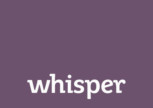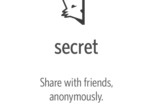
A ripple of dread rolled through Hollywood’s power publicist ranks in February. For the first time since its 2012 debut, the anonymous secret-sharing app Whisper had ensnared an A-list star.
Gwyneth Paltrow, according to a Whisper post, was cheating on her husband, the Coldplay singer Chris Martin, with an entertainment lawyer. Paltrow’s media bodyguard, Stephen Huvane, immediately rejected the rumour as “absolutely 100 per cent false.” But the fuse had been lit. Paltrow’s private life was now the subject of a tabloid brush fire.
“That one post changed everything,” The Hollywood Reporter wrote of the potential power of Whisper in show business. “Suddenly every PA, hairstylist and ex-spouse will have a platform to spill their guts with anonymity.”
But then something strange happened: nothing. Instead of serving up the expected torrent of anonymous information — secrets, gossip, facts, falsehoods — Whisper’s Celebrities and Pop Culture forum reverted to its rather tame self. After scrolling through pages and pages (and pages) of posts, the most scandalous celebrity message this muckraker could find was “Adam Sandler is an idiot.”
Secret, a rival anonymous app that has exploded in Silicon Valley, has also been slow to make inroads in Hollywood.
Why?
If you ask Whisper, the answer involves its raison d’etre. “We don’t want to facilitate meanness,” said Michael Heyward, Whisper’s chief executive. “We want people to feel less lonely and isolated. It’s freeing to share a secret, and you realise that you’re not alone when other people share the same thing.” (Sample confession: “I cried at work yesterday in my office. I’m 33 and a guy.”)
The company, based in this city’s Venice neighbourhood, says it has built filters to reduce celebrity gossip and everyday name-calling. “We have a huge layer of technology that detects proper names and puts those posts in a different queue for evaluation by 130 full-time human moderators,” Heyward said. “At least in the short term, these policies have been growth inhibitors for us.”
Still, his moderators approved the post on Paltrow, who — coincidence or not — announced her “conscious uncoupling” from Martin a few weeks later. What, if not meanness, was at the root of the Whisper post about her love life? (Paltrow’s spokesman did not respond to a request for comment.)
I suspect the real reason that Whisper has been slow to catch on in Hollywood is rooted in the nature of Hollywood itself. Despite all the blather about it being impossible to hide from the tweeters and Instagrammers lurking in every nook and cranny of the Chateau Marmont, moviedom is still extremely skilled at hiding stuff.
“The secrets people will hold here never cease to amaze me, and I think it has a lot to do with how hard it is to get inside the club,” said Janice Min, the top editor at The Hollywood Reporter and Billboard magazine. “Once you’re in, you are so afraid of being kicked out that you keep your mouth shut.”
Nobody in Hollywood is shy about spreading rumours, of course. “But it’s either done person to person over lunch or people pick up the phone,” Min noted. “That’s how people here feel comfortable.”
In other words, they don’t trust the internet to protect their identities. Page Six and TMZ reporters, well, that’s another story altogether. “People who use these apps want to be exposed,” said Lindsay Greitzer, a former personal assistant to marquee directors like Peter Berg and Gore Verbinski. “Or they want something for themselves instead of a thriving career.”
Adding to the paranoia: Whisper, which says that users should feel safe in their anonymity in part because it requires no registration, recently started to collaborate with BuzzFeed, leading to articles like “24 Terrifying Confessions From Medical Professionals.” Whisper, which has raised $60 million (Dh220.3 million) in funding and says it generates six billion page views a month, also has a content deal with Fusion, an upstart television and digital network from Univision and Disney.
The mobile service Secret is a bit of a different beast. It broadcasts anonymous posts only among networks of preselected “friends” connected by online address books versus Whisper’s public feed. The result has tended to be technology-related gossip because many users are clustered around its base in Silicon Valley.
Secret also counts Ashton Kutcher as a financial backer. It would be, um, a little awkward for Secret to traffic in gossip about his celebrity compatriots.
Even so, a Secret spokeswoman, Sarahjane Sacchetti, said expansion is a priority. “You’ll see more LA secrets in the coming months, for sure,” she said.
Both Whisper and Secret rely on people spouting off about things they think are interesting, and people in the entertainment industry often have a blase take on bad behaviour. A few years ago, a publicist at a movie studio casually mentioned that a married production executive was having a drug-fuelled affair with one of his studio underlings. “You realise that I’m a reporter, right?” I remember saying. The response was a shrug. “Nobody really cares,” the publicist said.
Just another day in the dream factory.
Hollywood is also a world where juicy private information has long sold to the highest bidder: The National Enquirer, the British tabloids, TMZ. If you have gossip people will care about, why would you give it away on Whisper or Secret?
“When someone here goes after someone, there is a desire to inflict maximum damage,” Min said. “Long before you go to Whisper, you’re going to try and get Vanity Fair to bite.” (Coincidentally — or not — Paltrow turned up on Whisper immediately after Vanity Fair announced that it had decided not to publish an article about her that was widely expected to explore her marriage.)
Even so, publicists (and entertainment reporters) are less than thrilled that they now have to police an ever-expanding array of anonymous apps — just in case.
“People have been spreading malicious gossip anonymously since before the Romans began scratching graffiti on the walls of the Colosseum,” said Allan Mayer, a principal partner at 42West, a blue-chip entertainment PR firm. “Apps like Whisper or Secret just make it easier.”
The final assessment from Mayer, who runs 42West’s crisis department? “No wonder some people say progress is overrated.”
— New York Times News Service












